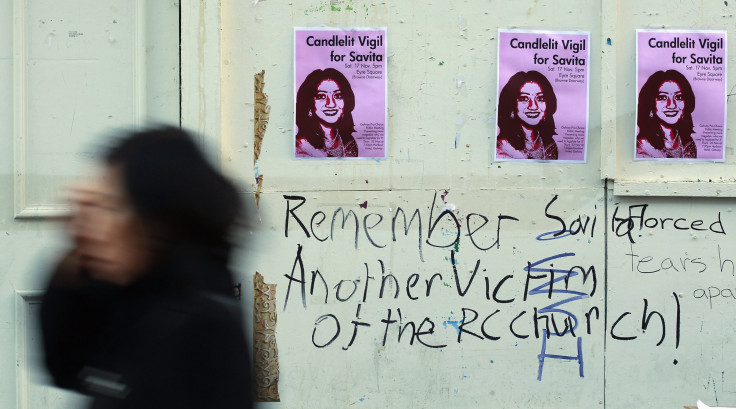Brain-Dead Pregnant Woman Can Be Taken Off Life Support, Irish Court Rules In Landmark Judgment

In a landmark judgment that would provide a major boost to the pro-choice campaigners in the country, an Irish court on Friday ruled that doctors can switch off the life support of an 18-weeks pregnant woman who had been declared brain dead early this month, according to media reports. The judgment was delivered after doctors reportedly testified that the fetus couldn’t survive for another two months needed for it to be delivered safely.
“To maintain and continue the present somatic support for the mother would deprive her of dignity and subject her father, her partner and her young children to unimaginable distress in a futile exercise which commenced only because of fears held by treating medical specialists of potential consequences,” a three-judge panel of the Irish high court reportedly said in its ruling.
The woman, whose name was not disclosed, was reportedly declared brain dead on Dec. 3 when she was 15-weeks pregnant. The woman, who is in her late 20s, had suffered a head injury from a fall in November. However, doctors had refused to switch off her life support, against her family’s wishes, as they were uncertain of the legal rights of the fetus, according to media reports.
The judgment was delivered after a number of doctors testified that the chances of the fetus surviving were virtually non-existent, according to media reports. Peter McKenna, the clinical director at the hospital where the woman was being treated, reportedly said that there was no justification for continuing the life support and that doing so would be “going from the extreme to the grotesque.”
Under the Irish constitution, both the mother and the fetus hold equal legal protection, making abortion illegal in the country. However, a number of pro-choice campaigners have called for reforms to the law demanding that a pregnant woman be given the right to terminate pregnancy if it poses a risk to her life.
Protests against the anti-abortion laws, decried by many as draconian, had intensified after Savita Halappanavar, a 31-year-old pregnant woman, died in 2012 from blood poisoning after doctors reportedly refused to abort the 17-week-old fetus.
However, far from providing clarity on the contentious issue, the latest ruling, which challenges the Irish constitution, is likely to add to the prevailing confusion among doctors over the interpretation of the country’s strict anti-abortion laws.
© Copyright IBTimes 2024. All rights reserved.












